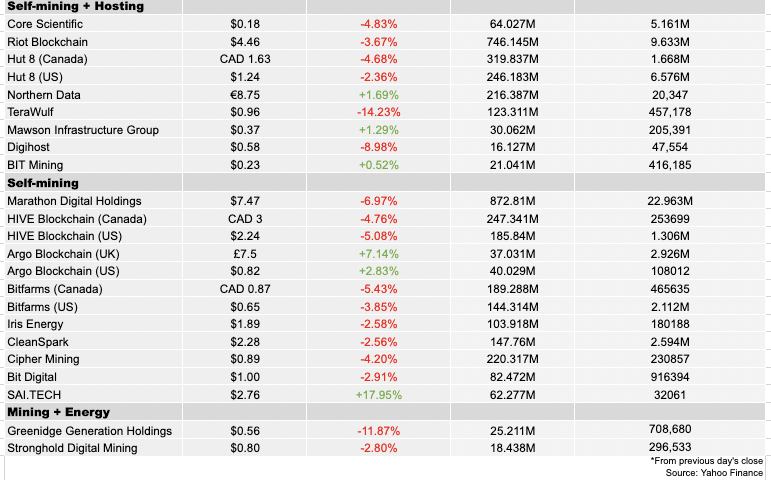From precocious bookworm and mathlete to moving billions of dollars of customer money to allegedly cover her firm’s liabilities, the rise of Alameda Research CEO Caroline Ellison was almost as spectacular as the fall.
It was only about two weeks ago when the 28-year-old executive Ellison took to Twitter in an attempt to cool market jitters sparked by revelations concerning the quantitative crypto trading firm she had been running since last year and its sister crypto exchange FTX. She seemed to suggest that Alameda was not in dire financial straits and instead had more than $10 billion in assets. But things changed quickly.
Anxious FTX customers couldn’t withdraw their funds, and the value of the platform’s native token tanked. Allegations circulated that Ellison — in lockstep with FTX founder Sam Bankman-Fried — may have taken billions of dollars that belonged to FTX clients and used it to try and cover a slew of poor trades and investments made by Alameda. Just days later, both firms filed for bankruptcy protection, a dark and immediate turn for the two young, rising stars who as colleagues and one-time romantic partners had dreamed of giving away tons of money to charity as part of their belief in a philosophy known as “effective altruism.”
Customers and regulators are now looking for answers as the entire industry teeters in the wake of the collapse. Past statements made by Ellison and Bankman-Fried are being analyzed for clues about how one of the biggest financial collapses in history could have gone down. Should anyone have seen it coming?
Many of their past comments aren’t aging very well, including Ellison’s claim that using mathematics as head of a multi-billion hedge fund wasn’t crucial.
“Absolutely could pull it off without my math degree,” she said during an episode of the El Momento podcast, posted to YouTube in May. She then went on to say that working at the Alameda trading firm she used “very little math” and what she did use was “like elementary school.”
Efforts to contact Ellison for comment were unsuccessful.
Twitter Persona
The crypto executive’s social media posts were often immature, to say the least.
In June of 2021, she posted a screenshot of books she said Amazon had suggested she may like. They included several historical romances including “Devil’s Cub” by Georgette Heyer and a history of the Third Reich by Richard J. Evans. “Ok amazon,” Ellison wrote along with the screen grab.
Two months earlier, she joked about taking amphetamines. “Nothing like regular amphetamine use to make you appreciate how dumb a lot of normal, non-medicated human experience is,” she wrote.
Change the world
It’s hard to think Ellison failed to grasp the implication of borrowing billions of dollars from FTX customers to plug holes at Alameda. But as one person familiar with FTX and Alameda put it, Ellison —like Bankman-Fried— had a singular goal of changing the world and was willing to do anything it took.
They “were just willing to justify anything to do so,” the person said. “Like, they really did view themselves as like the people who are worthy…They consider themselves smart, informed, and capable of making these big choices.”
As a child Ellison loved reading, especially Harry Potter books, before eventually focusing much of her time on mathematics. The daughter of two MIT economists, academics played a central role throughout her upbringing. Bespectacled, bright and stereotypically nerdy, she competed in both mathematics and linguistics tournaments while in high school.
Ellison’s father, Glenn Ellison, runs the economics department at MIT, the same university where SEC Chair Gary Gensler has taught. Glenn Ellison didn’t immediately respond to an emailed request for comment from The Block, and calls to a telephone number listed on an MIT website went unanswered. Ellison’s mother, Sara Fisher Ellison, is also a professor at MIT. She also did not immediately respond to a request for comment.
Coincidentally, Bankman-Fried got a physics degree from MIT in 2014.
Stanford Days
After Ellison graduated from Newton North High School, located about twenty minutes outside Boston, she headed west to study at Stanford. She said in an FTX podcast from 2020 she had been eager to expand her horizons.
One former Stanford student who said they lived in the same dorm as Ellison and took several classes with her told The Block that Ellison had been “nerdy,” “academically focused,” and “highly intelligent.” The fellow student, who asked to remain anonymous, said they never saw any indication of “unscrupulous behavior,” characterizing their relationship as one of acquaintances rather than close friends.
During her studies Ellison said she began to gravitate toward finance although she hadn’t previously been very interested in markets and investing. While at Stanford she interned at quantitative trading firm Jane Street Capital. “Before I did any trading I didn’t really consider myself a trader-y person,” she later said in the FTX podcast.
Ellison graduated from Stanford in 2016, earning a Bachelor of Science in Mathematics. Outside the classroom, according to her LinkedIn profile, which has since been deactivated, she participated in Stanford’s Effective Altruism group. The organization’s website says it runs “discussion groups, guest dinners, [and] career development sessions.”
It’s not clear if Ellison later introduced effective altruism to Bankman-Fried, who she met while working at Jane Street, but they both openly espoused their dedication to the philosophy centered around employing rational methods to philanthropy. Stanford’s Effective Altruism page characterizes it as a social movement “committed to combining compassion with reasoning and evidence.”

Bankman-Fried on stage with supermodel Gisele Bundchen talking about giving to charity.
Jane Street
Ellison spent about a year and half trading equities at Jane Street before leaving the firm in 2018 in order to join Bankman-Fried’s fledgling crypto hedge fund Alameda Research, she said on the FTX podcast. Her and Bankman-Fried are rumored to have been extremely close, living together in the same luxury compound in the Bahamas and involved romantically at one point.
After a few years as an Alameda trader, Bankman-Fried elevated Ellison to co-CEO of the trading firm in July 2021. Then this August, Ellison took over as sole CEO when Sam Trabucco stepped down to spend more time “working on ‘myself’ and whatnot.”
“I hope he has a great time on his boat!” Ellison wrote on Twitter, saying she had had an “incredibly formative experience” working with him.
Later, in a blog interview, when asked about her plans as CEO of Alameda Ellison talked about formalizing the world of digital currency. “We’ve come to occupy a fairly unique space in the crypto industry,” she said in an interview, “bringing traditional finance backgrounds to help the crypto markets become more orderly and efficient.”
Tumblr Archive
Behind the scenes it appears Ellison harbored some unconventional ideas. In a Tumblr account linked to Ellison, she openly discusses her views on maintaining a polyamorous relationships and how, in her opinion, there should be a rigid structure. “I’ve come to decide the only acceptable style of poly is best characterized as something like ‘imperial Chinese harem,’” she wrote in 2020. “None of this non-hierarchical bulls–t; everyone should have a ranking of their partners, people should know where they fall on the ranking, and there should be vicious power struggles for the higher ranks.”
Within the Tumblr account, which was discovered, archived and posted online before being deleted, Ellison flags when she started her Twitter account @carolinecapital in 2021. She has not confirmed the Tumblr account is hers.
Since her last Twitter post when she said Alameda had more than $10 billion in assets, Ellison has not been heard from. Unlike Bankman-Fried, she’s been publicly silent, leaving only her past words to give clues into what her current mindset might be.
On July 26, 2021, she posted a lengthy Twitter thread in which she opined about her decision-making process.
“It seems like it should be important to get hard decisions right. But actually, if a decision is hard it’s sort of necessarily only marginal,” she wrote. “So I don’t think success usually comes from getting hard decisions right. It comes more from looking for the biggest problems or opportunities, and actually trying to address them.”
With reporting assistance from Kari McMahon.
© 2022 The Block Crypto, Inc. All Rights Reserved. This article is provided for informational purposes only. It is not offered or intended to be used as legal, tax, investment, financial, or other advice.




